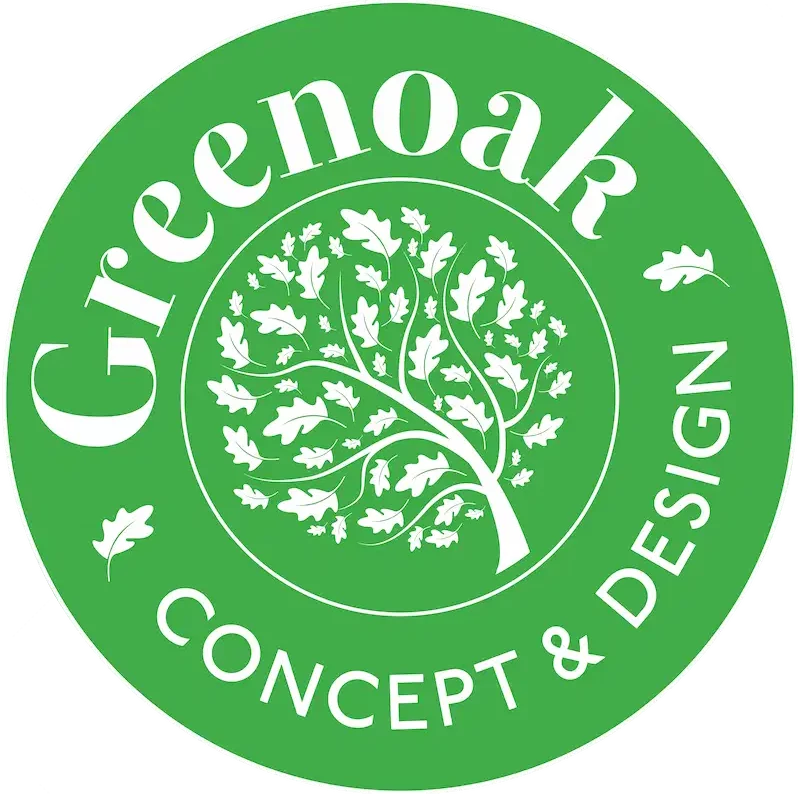

When it’s time to refresh your conservatory, choosing the right roof is crucial for creating a space that’s both inviting and functional.
In Greenoak’s comprehensive guide, we’ll delve into the key differences between tiled conservatory roofs and polycarbonate (plastic) roofs, helping you make an informed decision that suits your needs and preferences.
What Is The Most Energy-Efficient Conservatory Roof?

When it comes to assessing energy efficiency in building materials, the U-value is a useful metric. Essentially, the U-value measures the rate of heat loss through a material. The lower the U-value, the better the insulation properties of the material, as it indicates reduced heat transfer and, consequently, lower energy consumption for heating or cooling purposes.
Tiled conservatory roofs stand out for their exceptional energy efficiency, exhibiting a remarkably low U-value as low as 0.15W/m2k. This low U-value reflects superior insulation capabilities, effectively minimising heat transfer and maintaining stable internal temperatures throughout the year.
As a result, homes with tiled conservatory roofs enjoy enhanced comfort while potentially reducing energy consumption and associated costs.
In contrast, polycarbonate roofs typically present higher U-values, ranging from 1.6W/m2k to 2.4W/m2k. This higher U-value signifies reduced insulation efficiency compared to tiled roofs, leading to more significant heat loss in colder months and greater heat gain in warmer weather.
Consequently, conservatories with plastic roofing panels may experience greater temperature fluctuations, requiring additional heating or cooling measures to maintain comfort levels.
When considering energy efficiency, the advantages of tiled conservatory roofs become apparent. With superior insulation properties and a significantly lower U-value, tiled roofs offer more consistent temperature control and potential cost savings on energy bills compared to polycarbonate alternatives. Additionally, the enhanced energy efficiency of tiled roofs aligns with sustainable living practices, reducing overall energy consumption and environmental impact.
How Long Will My Conservatory Roof Last?

In terms of maintenance and upkeep, tiled roofs excel in durability and lasting performance. Designed for endurance, tiled conservatory roofs can maintain their structural integrity for up to five decades with minimal maintenance.
They resist UV degradation and eliminate concerns over panel slippage or deterioration, ensuring a reliable and enduring roofing solution.
In contrast, polycarbonate roofs offer a shorter lifespan, typically lasting between 10 to 15 years. However, this shorter duration requires regular maintenance to prevent common issues such as discolouration, brittleness, and panel slippage.
Without diligent upkeep, these issues can escalate, leading to leaks and draughts, compromising the comfort and integrity of the conservatory space.
During the installation process, a lightweight tiled conservatory roof is carefully fitted to ensure optimal performance and longevity. Each tile is precisely placed and secured, forming a seamless and sturdy roof structure. This detailed installation process not only enhances the durability of the roof but also contributes to its aesthetic appeal.
In terms of natural light, both tiled and polycarbonate roofs offer unique advantages. Insulated conservatory roofs, while providing excellent durability, may limit the amount of natural light that enters the conservatory.
However, strategic placement of roof windows or glazed panels can help maximise natural light penetration, creating a bright and inviting space. Conversely, polycarbonate roofs, with their translucent panels, allow ample natural light to filter through, illuminating the interior space with soft, diffused light.
Which Conservatory Roof Provides The Best Soundproofing?

Solid conservatory roofs excel in sound insulation, effectively dampening external noises such as heavy rain or outside disturbances, thus promoting a serene and peaceful ambience within the space.
On the other hand, polycarbonate roofs offer minimal soundproofing, allowing external sounds to infiltrate the conservatory, potentially disrupting the tranquillity.
This difference in sound insulation is particularly noticeable during adverse weather conditions or in areas with high noise levels. Therefore, for those prioritising a quiet and undisturbed environment, opting for a tiled roof can significantly enhance comfort and privacy within the conservatory.
How Much Does A Conservatory Roof Cost?

When comparing tiled and polycarbonate conservatory roofs, it’s crucial to consider factors like size, shape, and design preferences.
While polycarbonate roofs come with a lower initial cost, they often require more maintenance and have a shorter lifespan.
On the other hand, solid tiled roofs require a larger upfront investment but offer a guarantee of up to 50 years and minimal maintenance.
Additionally, tiled roofs can add value to your home, making them a worthwhile investment if you plan to sell your house in the future. Understanding these differences helps in making an informed decision aligned with your needs and long-term goals.
Can I Customise My Conservatory Roof?

Tiled conservatory roofs present an array of finishes, offering homeowners the opportunity to select a design that harmonises effortlessly with their home’s exterior aesthetics.
With a diverse range of tile designs and colours available, customisation options abound, enabling you to tailor your roof to match your property’s unique architecture and reflect your style.
This versatility ensures that your conservatory seamlessly integrates with your home while adding a touch of individuality. On the flip side, polycarbonate roofs lack such customisation capabilities, providing fewer options for tailoring the roof’s appearance to match your property’s aesthetic.
Do You Need Planning Permission For A Conservatory Roof?

Both polycarbonate and solid conservatory roofs can typically be installed without seeking specific planning permission, provided they adhere to building regulations.
Building regulations stipulate criteria such as the height and size of the conservatory, its proximity to boundary lines, and its impact on neighbouring properties. While planning permission might not be necessary, ensuring compliance with these regulations is crucial.
It’s important to note that while planning permission may not be required, obtaining a Certificate of Lawfulness from your local authority can provide peace of mind and confirmation of compliance with regulations.
Consulting with a professional contractor, like Greenoak Concept & Design, can help navigate these regulations and ensure a smooth installation process while avoiding any potential legal issues.
Choosing The Perfect Conservatory Roof
As you weigh the pros and cons of tiled roofs and polycarbonate roofs, remember that the right choice ultimately depends on your unique preferences and priorities.
Whether you prioritise cost, energy efficiency, durability, or style, Greenoak Concept & Design is here to assist you every step of the way.
With our expertise and dedication to excellence, we’ll help you select the perfect tiled conservatory roof that enhances your home and lifestyle.




